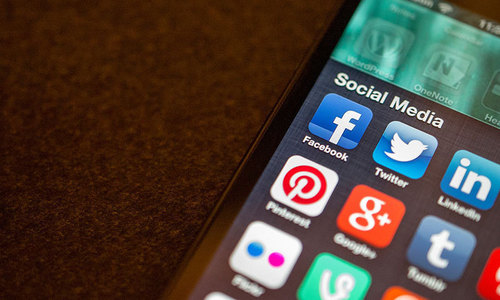ISLAMABAD: In a new survey of internet users around the globe, social media companies emerged as the leading source of user distrust in the internet — surpassed only by cyber criminals — with 75 per cent of those surveyed who distrust the internet citing Facebook, Twitter and other social media platforms as contributing to their lack of trust.
While cyber criminals, cited by 81pc of those who distrust the internet, remained the leading source of distrust, a majority in all regions — 62pc globally — indicated that a lack of internet security was also a critical factor.
These and other findings were released by United Nations Conference on Trade and Development (UNCTAD) on Friday as ‘CIGI-Ipsos Global Survey on Internet Security and Trust’. The survey, now in its fifth year, is the world’s largest and most comprehensive survey of internet security and trust, and was conducted between Dec 21, 2018, and Feb 10, 2019, and involved 25,229 internet users in Australia, Brazil, Canada, China, Egypt, France, Germany, Great Britain, Hong Kong (China), India, Indonesia, Italy, Japan, Kenya, Mexico, Nigeria, Pakistan, Poland, Russia, South Africa, Republic of Korea, Sweden, Tunisia, Turkey and the United States.
In terms of the effects of user distrust, nearly half (49pc) of those surveyed who distrust the internet said their distrust had caused them to disclose less personal information online, while 40pc reported taking greater care to secure their devices and 39pc said they were using the internet more selectively.
Conversely, only a small percentage of people reported making use of more sophisticated tools — such as using more encryption (19pc) or using technical tools like Tor (The Onion Router) or virtual private networks (VPNs) (12pc) — to protect themselves online.
Eight out of 10 (78pc) people surveyed are concerned about their online privacy, with over half (53pc) more concerned than they were a year ago, marking fifth year in a row that a majority of those surveyed say they feel more concerned about their online privacy than the previous year.
Fewer than half (48pc) believe their government does enough to safeguard their online data and personal information, with the lowest confidence levels in North America (38pc) and the G-8 countries (39pc).
Citizens around the world are increasingly viewing their own governments as a threat to their privacy online. In fact, more people attributed their growing online privacy concerns to domestic governments (66pc) — a majority in nearly every region surveyed — than to foreign governments (61pc).
Less than half of global citizens express at least some degree of confidence that any of the algorithms they use are unbiased, in any context. Confidence was highest in algorithms used for facial recognition systems (47pc) and search engines (46pc), and lowest in algorithms used for social media news feeds (32pc) and predictive policing (34pc).
The most common reasons for a lack of confidence in the unbiasedness of algorithms were a lack of transparency, a perception that they are exploitative by design and the absence of a human element from decision-making. By contrast, objectivity, a lack of human emotion to cloud decision-making and the absence of human influence were most frequently mentioned by those who expressed confidence in the unbiasedness of algorithms.
Eighty-six per cent said they had fallen for fake news at least once, with 44pc saying they sometimes or frequently did. Only 14pc said they had “never” been duped by fake news. Facebook was the most commonly cited source of fake news, with 77pc of Facebook users saying they had personally seen fake news there, followed by 62pc of Twitter users and 74 cent of social media users in general.
Ten per cent of Twitter users said they had closed their Twitter account in the past year as a direct result of fake news, while nine per cent of Facebook users reported doing the same.
A majority of internet users around the globe support all efforts by governments and internet companies to combat fake news, from social media and video sharing platforms deleting fake news posts and videos (85pc) and accounts (84pc) to the adoption of automated approaches to content removal (79pc) and government censorship of online content (61pc).
Published in Dawn, June 10th, 2019














































